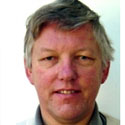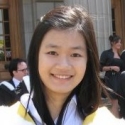The PhonicStick®: A Novel Device for Individuals with Complex Communication Needs
Providing Children with Complex Communication Needs (CCN) with access to Phonemic Speech Output
Project funding by: Capability Scotland, The Nuffield Foundation
Introduction
Augmentative and alternative communication (AAC) is a field within assistive technology which has advanced rapidly since the early 1980’s. AAC devices usually have a voice output facility and are designed to be used by people with physical impairments, e.g., using touch screens or switch input. Since the late 1980s, there has been a research focus on using AAC technology to improve the communication and the quality of life for people with disabilities. This has resulted in the development of systems that help individuals with no functional speech to (a) communicate; (b) communicate at a faster rate; and (c) develop language.
Most speech generating devices (SGDs) provide access to pre-stored words or phrases using a code system. Several mnemonic systems are available to assist code recall, e.g. semantic compaction which uses multi-meaning icons and dynamic screens which use a hierarchical set of picture pages. The use of icons and pictures caters for non-literate users; the pool of pre-stored messages is thus not necessarily created by the user but by the supplier, therapist, carer etc.
A major problem with current SGDs is the high cognitive load imposed on users who have to master the retrieval system employed by their system. Users are seldom able to create words from scratch but need to remember what words or phrases are stored and what codes are needed to retrieve them.
User Studies
In our experience, it is often very difficult for individuals with physical disabilities to co-ordinate the operational use of conventional SGDs. However, these children often exhibit good control of powered mobility using a joystick. We wish to exploit the ability of these children to operate a joystick by developing a prototype joystick (to be known as the PhonicStick® ) which will allow children with CCN to have direct access to spoken phonemes.
A number of studies in different countries using the PhonicStick® have been conducted by now. Masters students in Speech and Language Pathology (Logopedi) at the University of Uppsala conducted studies in Scotland, Sweden and South Africa. Please look at our publications (listed below) for links to their theses and further accademic output.
Related and Preceeding Projects
- Development of a force feedback speaking joystick for children with complex communication needs
- Development of a phonic based speech synthesiser for children with complex communication needs
- PhonicStick® – extension of the BabbleStick Project
- The Babblestick – Providing Children with Severe Communication Disorders with Access to Phonic Speech Output
Contact
Please contact Rolf Black (email: r.black@dundee.ac.uk or see other contact details of contributors below) for more information.
PhonicStick is Registered Trademark of the University of Dundee.
People

Prof Annalu Waller
Professor of Human Communication Technologies
Contact: a.waller@dundee.ac.uk
Phone: +44 (0)1382 388223

Rolf Black
Research Assistant
 Prof Eric Abel
Prof Eric Abel
Professor of Biomedical Engineering
 Prof Graham Pullin
Prof Graham Pullin
Course Director, Digital Interaction Design
Contact: g.pullin@dundee.ac.uk
Phone: +44 (0)1382 386531
Publications
2011 Conference Proceedings
“The PhonicStick – A Joystick to Generate Novel Words Using Phonics“, R. Black; 1st Price Student Research Competition; ASSETS, The 13th International ACM SIGACCESS Conference on Computers and Accessibility (2011). Dundee, Scotland, 24-26 October.
“Using a Computer Intervention to Support Phonological Awareness Development of Nonspeaking Adults“, H. Trinh; 2nd Price Student Research Competition; ASSETS, The 13th International ACM SIGACCESS Conference on Computers and Accessibility (2011). Dundee, Scotland, 24-26 October.
“The PhonicStick: Interactive access to sounds for people with Complex Communication Needs“, Ha Trinh, Annalu Waller, Rolf Black, James Bennet; Demo Session at the Second Workshop on Speech and Language Processing for Assistive Technologies (SLPAT) (2011), Edinburgh, Scotland, UK, 30 July. (Proceedings, external link, pdf)
“Incorporating synthetic speech into a phoneme-based communication system“, Ha Trinh, Annalu Waller, Rolf Black; FICCDAT/RESNA 2011 Festival of International Conference on Caregiving, Disability, Aging and Technology (2011). Toronto, Canada, 5-8 June.
2011 Academic Theses
“Does training with the PhonicStick improve phonological awareness?: A meta study including one new pilot study“, Ek, Tom, Degree of Master of Science in Speech and Language Pathology (2009), Uppsala University, Disciplinary Domain of Medicine and Pharmacy, Faculty of Medicine, Department of Neuroscience.
2010 Conference Proceedings
“Further Development of the PhonicStick: The application of phonic-based acceleration methods to the speaking joystick”, H. Trinh, E. Reiter, R. Black, A. Waller; Communication Matters National Symposium (2010). Leicester, UK, 26-28 September.
“Further Development of the PhonicStick: The application of phonic-based acceleration methods to the speaking joystick”, H. Trinh, E. Reiter, R. Black, A. Waller; 14th Biennial Conference of the International Society for Augmentative and Alternative Communication (2010). Barcelona, Spain, 24-29 July.
“How do Swedish children handle the PhonicStick and will it affect their phonological awareness?”, E. Ager, E. Solli, M. Jennische, R. Black, A. Waller; 14th Biennial Conference of the International Society for Augmentative and Alternative Communication (2010). Barcelona, Spain, 24-29 July.
“Can the PhonicStick enable language play and support phonological awareness for children with Down’s syndrome?”, E. Lempke, S. Lindberg-Wesslert, M. Jennische, R. Black, A. Waller; 14th Biennial Conference of the International Society for Augmentative and Alternative Communication (2010). Barcelona, Spain, 24-29 July.
“A South African Pilot Study: Learning How to Use the PhonicStick for Early Literacy Training”, J. Kimhag, G. Lindmark, M. Jennische, R. Black, A. Waller; 14th Biennial Conference of the International Society for Augmentative and Alternative Communication (2010). Barcelona, Spain, 24-29 July.
2010 Academic Theses
“The use of the PhonicStick in group training: Can South African children age 5-6 improve their phonological awareness by using the PhonicStick?”, Andersz, Caroline; Hansson, Anna-Maria, Degree of Master of Science in Speech and Language Pathology (2009), Uppsala University, Disciplinary Domain of Medicine and Pharmacy, Faculty of Medicine, Department of Neuroscience, Logopedi. (Download the thesis here.)
“A PhonicStick Study: Investigating the Effectiveness of a Phonological Awareness Intervention in Children with Down Syndrome.”, Gullberg, Jenny; Granholm, Josefin, Degree of Master of Science in Speech and Language Pathology (2009), Uppsala University, Disciplinary Domain of Medicine and Pharmacy, Faculty of Medicine, Department of Neuroscience, Logopedi. (Download the thesis here.)
“The PhonicStick Nursery Study: Can phonological awareness be initiated by using a speaking joystick?”, Lindström, Nina; Peronius, Irmeli, Degree of Master of Science in Speech and Language Pathology (2009), Uppsala University, Disciplinary Domain of Medicine and Pharmacy, Faculty of Medicine, Department of Neuroscience, Logopedi. (Download the thesis here.)
2010 Other Public Outputs
“The Development of A Novel Sound-based Communication Aid for Individuals with Complex Communication Needs”, H. Trinh; ICCHP 2010 12th International Conference on Computers Helping People with Special Needs: Young Researchers Consortium (2010). Vienna, Austria, 12-16 July.
“A Speaking Joystick for People with Complex Communication Needs”, H. Trinh, A. Waller, R. Black, E. Reiter; SICSA PhD Conference (2010). Edinburgh, Scotland, 9-11 June. Poster and Abstract.
2009 Academic Theses
“The PhonicStick: A Swedish Study: How do children age 5 and 6 handle the PhonicStick and will the use of it affect their phonological awareness?”, E. Ager, E. Solli, Degree of Master of Science in Speech and Language Pathology (2009), Uppsala University, Disciplinary Domain of Medicine and Pharmacy, Faculty of Medicine, Department of Neuroscience, Logopedi. (Download the thesis here.)
“The PhonicStick and Language play. Can the PhonicStick be used for the purpose of enabling language play and thereby promote phonological awareness for children with Down’s Syndrome?”, E. Lempke, S. Lindberg-Wesslert, Degree of Master of Science in Speech and Language Pathology (2009), Uppsala University, Disciplinary Domain of Medicine and Pharmacy, Faculty of Medicine, Department of Neuroscience, Logopedi. (Download the thesis here.)
“The PhonicStick: A South African pilot study about learning how to use a communication device for early literacy training”, J. Kimhag, G. Lindmark, Degree of Master of Science in Speech and Language Pathology (2009), Uppsala University, Disciplinary Domain of Medicine and Pharmacy, Faculty of Medicine, Department of Neuroscience, Logopedi. (Download the thesis here.)
“Force-feedback Speaking Joystick for Children with Complex Communication Needs”, H. T. Trinh, BSc (Hons) Applied Computing (2009), University of Dundee, School of Computing.
2008 Conference Proceedings
“Introducing the PhonicStick: Preliminary evaluation with seven children”, R. Black, A. Waller, G. Pullin and E. Abel, ISAAC 2008 13th Biennial Conference of the International Society for Augmentative and Alternative Communication (2008), pp.424. Montreal, Canada, 2-7 August. ISBN: 978 0 9810463 0 3. (Abstract, pdf)
“Say what Simon says: “Playing” a new approach for phonemic speech output”, A. Waller, R. Black, C. Martin, G. Pullin and E. Abel, ISAAC 2008 13th Biennial Conference of the International Society for Augmentative and Alternative Communication (2008), ISAAC, pp.035. Montreal, Canada, 4-7 August. ISBN: 978 0 9810463 0 3. (Abstract, pdf)
“Phonemic speech output: A preliminary evaluation of the PhonicStick”, R. Black, A. Waller, G. Pullin and E. Abel, Communication Matters National Symposium (2008), pp.13. Leicester, UK, 21-23 September.
“”Simon Says”: Taking a game more literally”, A. Waller, R. Black, C. Martin, G. Pullin and E. Abel, Communication Matters National Symposium (2008), pp.13. Leicester, UK, 21-23 September.
2008 Academic Theses
“PhonicStick: Creating Training Games to Help Novice Users Learn a Joystick Interface”, C. Martin, BSc (Hons) Applied Computing (2008), , University of Dundee, School of Computing.
Timeline
October 2011: First and second price in the SRC at ASSETS 2011
 |
Rolf Black and Ha Trinh win first and second price in the Student Research Competition at the ASSETS 2011 conference. |
September 2011: Trademark for PhonicStick
 |
PhonicStick is now a University of Dundee Trademark. |
August 2011: We’re going to ASSETS 2011
 |
We will be presenting at ASSETS 2011 in Dundee, 24-26 October 2011: Rolf Black: “The PhonicStick – A Joystick to Generate Novel Words Using Phonics”. Will we see you there? |
March 2010: ISAAC 2010
 |
We have been accepted with a number of papers at ISAAC this summer in Barcelona. Take a look at ISAAC’s conference website: ISAAC 2010 and download our abstracts:
|

